Never before has the Holland Festival placed itself at the centre of society as it is today. The 2016 programme is steeped in the turbulent times in which we live. The Netherlands holds the presidency of the European Union this spring. Artistic director Ruth Mackenzie has taken this fact unflinchingly to give 'Europe' a wide place in the programming. Presenting the programme, she called ''The edges of Europe' as keywords. From here, she and her staff have chosen "urgent, politically charged" theatre, "challenging and innovative".
A political statement for or against Europe? The Holland Festival certainly doesn't provide that. You can look at 'Europe' from awe-inspiring angles. That's what Mackenzie is all about. It is not easy to have a simple, all-encompassing opinion on a complex subject like Europe. Art can help us look at the world in a different way, Mackenzie says. That is where she sees a task for the Holland Festival.
World stage
The result is a programme with an impressive mix of very different cultures. Dutch productions occupy a bigger place than in other years. The Holland Festival believes they deserve a world stage.
'The edge of Europe' refers, Mackenzie outlines, not only to countries on the edge of Europe from which performances are scheduled (such as Estonia and Ukraine). It also includes people in the middle of Europe who are, in one way or another, on the fringes of society 'The edge of Europe'.
Inviting
As innovative as many of the performances are, the programme looks inviting to everyone. The Holland Festival aims to get broad sections of the population across the threshold, including those who usually feel distance from what goes on in theatres and concert halls.
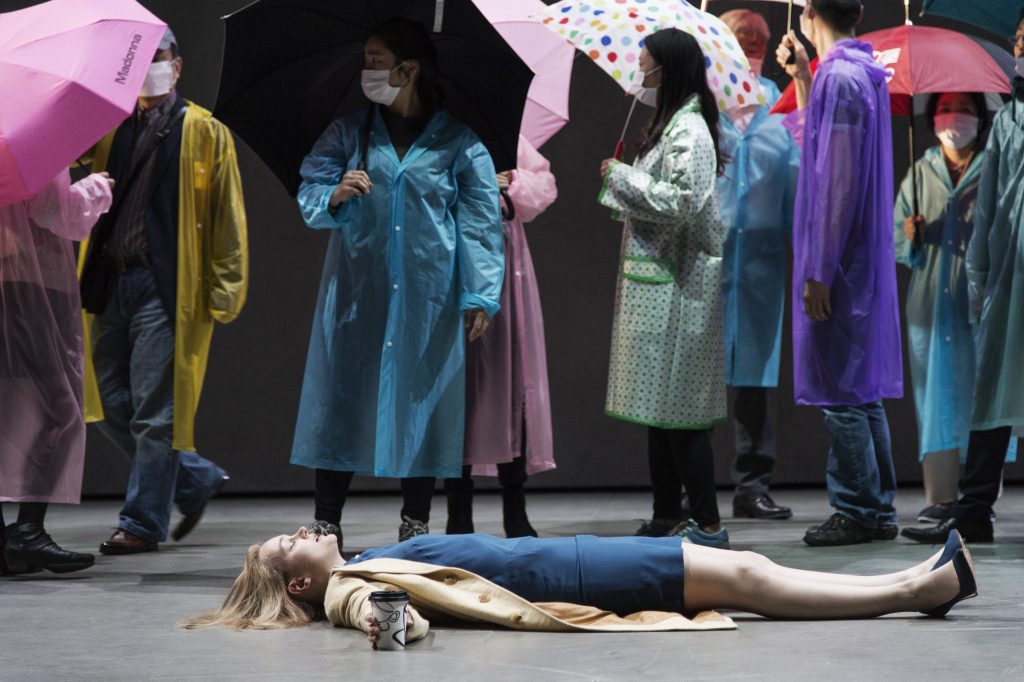
The festival opens remarkably with the international production 'Die Stunde da wir nichts voneinander wussten' by Thalia Theatre Hamburg (4 - 6 June). Playwright Peter Handke is one of the figureheads of experimental theatre from the 1960s and 1970s. That's not even that long ago. Yet this 1991 play spurred the directing duo Ene-Liis Semper and Tiit Ojasoo from Estonia to update it. They rewrote the play, tying in with the latest developments in Europe. Handke himself expressed curiosity about the result.
Free
The Holland Festival's 'social' intention is evident in several free events. On Leidseplein, the 'Chauvinism Scanner' by Vienna-based theatre collective God's Entertainment, where you can get tested on how xenophobic you are. In collaboration with the Stedelijk Museum, the interactive art installation 'Tomorrow is the Question' By Thai artist Rirkrit Tiravanija on show, in which the distance between artist and viewer is minimised. Free is also 'The Transmigration of Morton F.' by Sjaron Minailo, Anat Spiegel and Joan la Barbara, a "digital opera, ritual and computer game in one": to be followed by anyone with an internet connection.
Also intended for a wide audience are the six concerts with top musicians in the Holland Festival Proms in the Concertgebouw, an event that could grow into as close a tradition as the 'Night of the Proms' in London. Also surprising is AAA 'Pop-Art', in which American pop artist Son Lux and his trio play their folk/avant garde in collaboration with the Concertgebouw Orchestra.
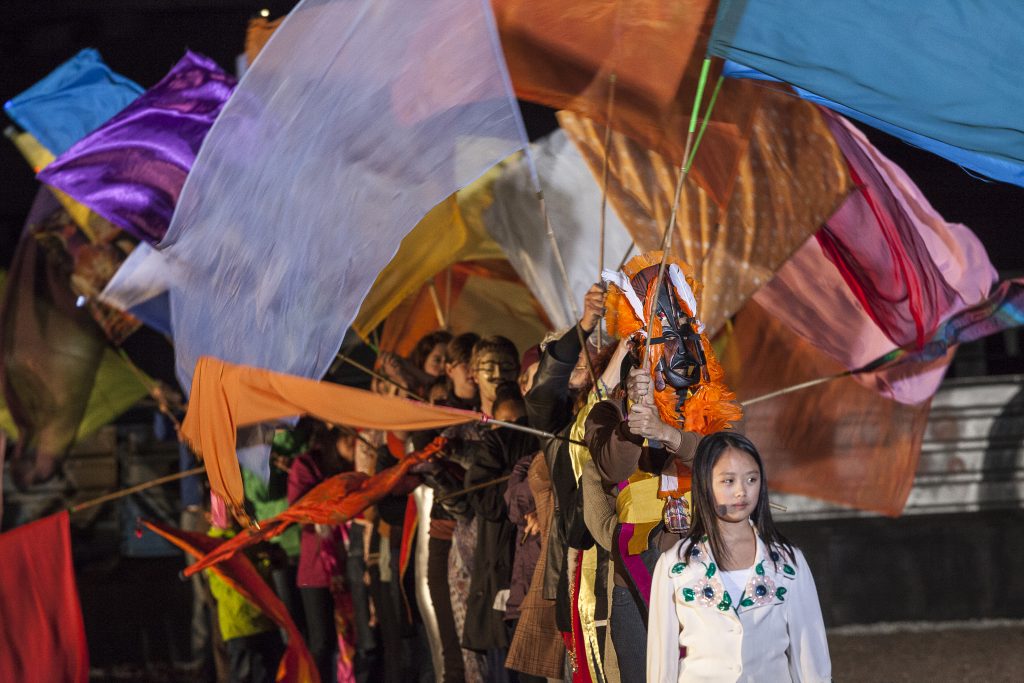
No fewer than four times, the quirky Dutch theatre group Wunderbaum on the programme. Idealism and the will to change the world are the subject of 'Stop acting now', a performance around a film in which the members of Wunderbaum take to society with their ideas and ideals. 'Privacy' is the result of a unique collaboration of Wunderbaum with that other idiosyncratic group The Warm Shop. This time, it is not about the privacy endangered by digital media, but about privacy in theatre: what happens when the audience has a shared experience? The open-air performance 'The Coming of Xia' on Java Island is a search by actors and the audience for an alternative society. Lots of philosophy, culminating in a limitless view of society.
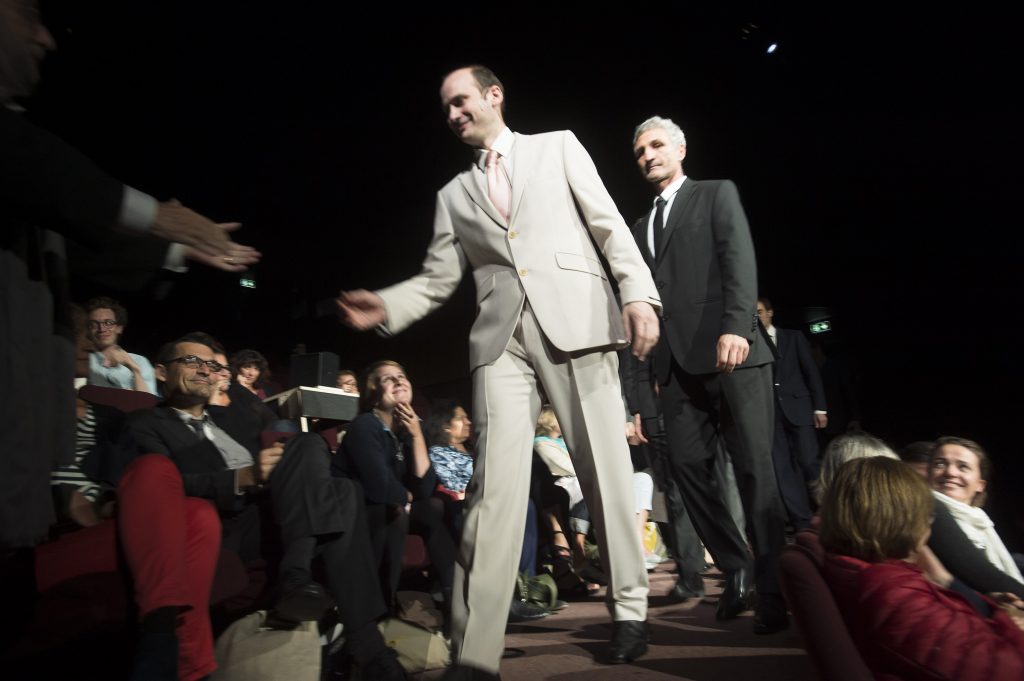
French playwright Joël Pommerat shows in 'Ça ira (1) Fin de Louis' see and hear the discussions during the French Revolution about power relations. They turn out to be surprisingly topical.
Andriessen
The name of former Holland Festival artistic director Pierre Audi has not gone away. He directs the opera 'Theatre of the World' by Louis Andriessen. It is a world premiere, performed by De Nationale Opera, with Reinbert de Leeuw conducting. In this production, he collaborates with the Quay Brothers, two American video artists. Theatre Carré is the setting for the dream world of Athanasius Kircher, the last universal Renaissance man.
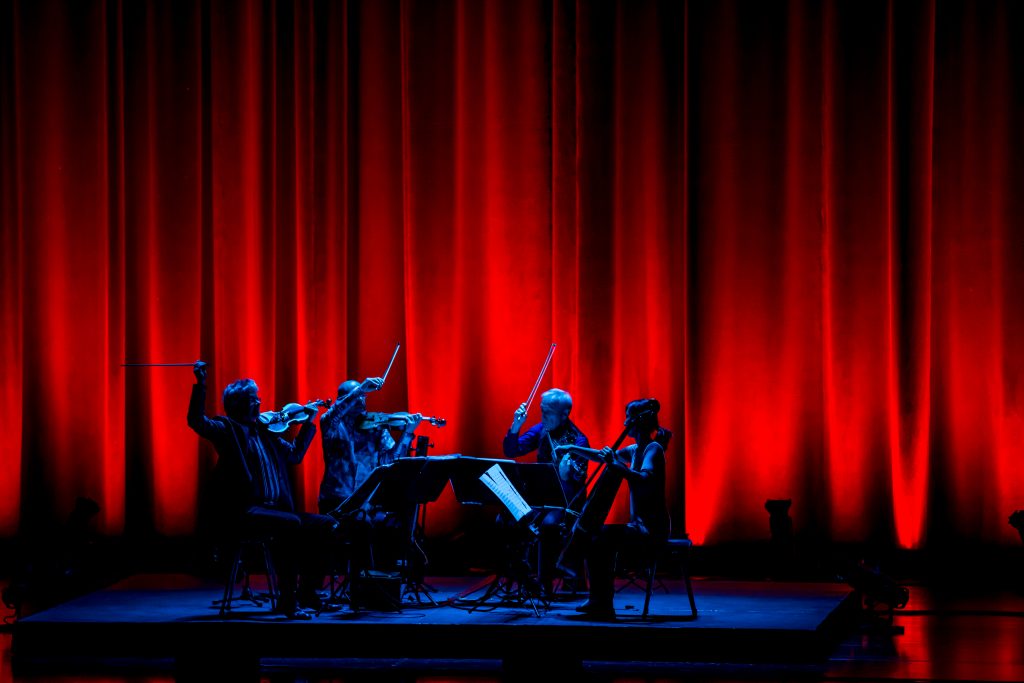
It also Kronos Quartet, which has been playing innovative repertoire for 40 years, has a strong presence at the festival. A five-year project starts this year, 'Fifty for the Future'. In it, the string quartet annually commissions ten composers to write a work. The festival will feature the world premiere of a quartet composed in this context by Merlijn Twaalfhoven. In addition, the Kronos will play music by Laurie Andersen and others. As an occasional octet with the Dutch Ragazze Quartet it will present the world premiere of a new work by Yannis Kyriakides. In addition, audiences will have the chance to look behind the scenes of string quartet practice in a number of public workshops given by the Kronos Quartet to other quartets.
Classic
That the programme is in the midst of our times is also shown by the fact that it features very few names of old masters. If they do appear, then only in a modern setting: Tchaikovsky's opera 'Pique Dame' by De Nationale Opera and Haydn's oratorio 'Die Schöpfung' by Collegium Vocale Gent and baroque orchestra B'Rock. This production also includes a film made to accompany this music by Berlin artist Julian Rosefeldt, which shows the ideal world of the creation story alongside the world as man has changed it.
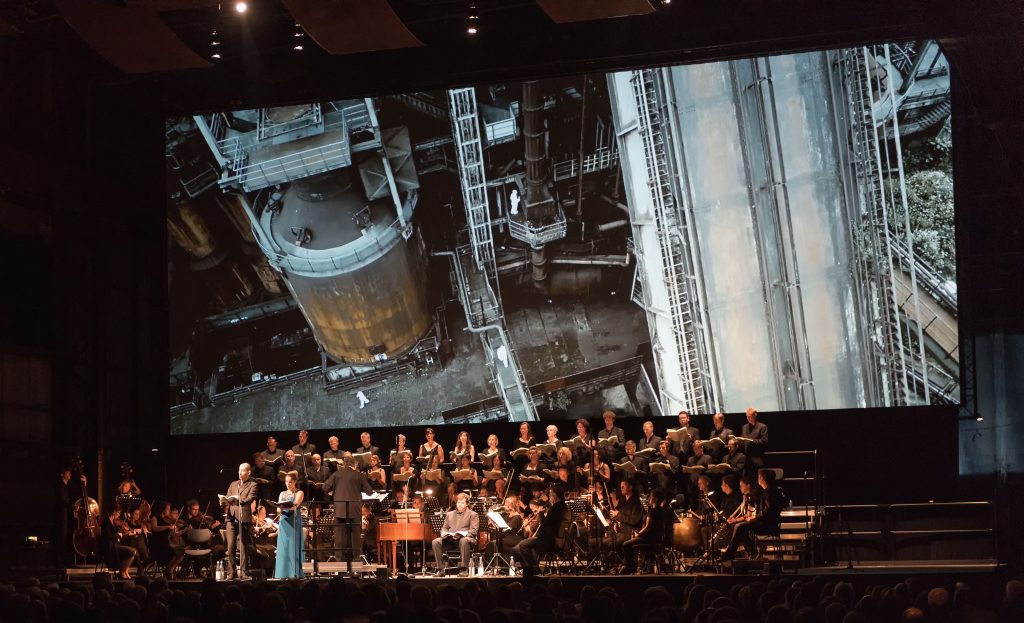
Not only European performances are on the programme. ''The edge of Europe' also means looking beyond European borders. This, in turn, runs nicely parallel to the Holland Festival's preference for collaborative projects and cross-border productions. The arrival of The Syrian National Orchestra for Arabic Music will be special. The musicians of the former Syrian orchestra lost sight of each other because of the war in their country. They will be reunited from all over the world for the first time since 2010 at the initiative of the Holland Festival.
Akram Khan
Bengali influences can be seen in 'Until the Lions', a dance performance by the Akram Khan Company. Featuring a blend of Indian Kathak dance and modern styles, choreographer Khan shows the changing body, from young to old, from male to female. It is the last time the famous dancer himself appears on stage.
Like last year, the Holland Festival cares about musical instruments threatened with extinction. Last year, the action 'Save the bassoon' was launched, which resulted in a large number of new compositions, performed this year by Pascal Gallois. At the same time, the new action 'Save the horn' will be launched, another great initiative to breathe fresh life into an instrument that holds an indispensable place in Western classical music.
In addition to this grab, the programme includes many highlights, complemented by many context programmes. The festival has published a beautifully and conveniently designed brochure.
Holland Festival 2016, 4 to 26 June in various venues in Amsterdam: www.hollandfestival.nl
